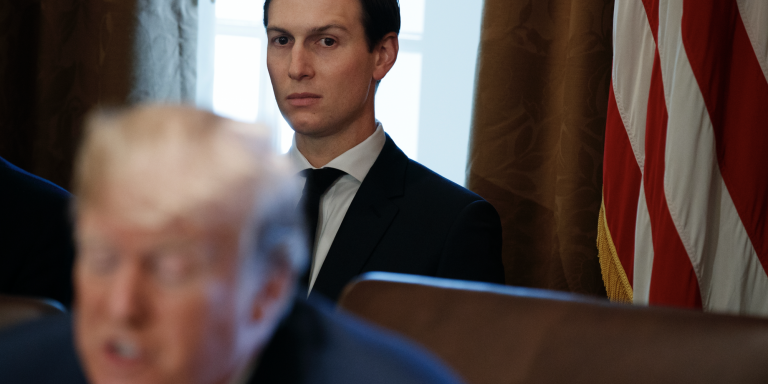INTELBRIEF
June 26, 2019
IntelBrief: The Paucity of ‘Peace to Prosperity’

- Under the leadership of Jared Kushner, the administration is attempting to cobble together a peace agreement between Israelis and Palestinians.
- The proposal has been harshly criticized by analysts and politicians alike, who note that Washington lacks credibility in the region and can hardly be viewed as an honest broker given the Trump administration’s policies.
- Kushner has squandered a vast amount of political capital attempting to advance American interests in the Middle East, with little or nothing to show for it.
- Few Arab states attending the conference have expectations of even modest success, much less that it will lead to a serious or prolonged peace initiative.
.
Under the leadership of President Trump’s son-in-law and foreign policy neophyte Jared Kushner, the administration is attempting to cobble together an approach to forging a peace agreement between Israelis and Palestinians. But to anyone paying close attention, the so-called Peace to Prosperity conference, a two-day event being held in Manama, Bahrain, appears to be a waste of time. The two parties that should be most invested—the Palestinians and the Israelis—have shown little interest to date. It is also impossible at this point for the U.S. to be considered an honest broker in any negotiated peace settlement, not only because of the Trump administration’s cozy relationship with Israeli Prime Minister Benjamin Netanyahu, but also because of Washington’s decision to move its embassy from Tel Aviv to Jerusalem, which officially opened in May. The administration has also defunded the United Nations Relief and Works Agency that provides support to displaced Palestinians.
The Manama conference will primarily focus on economics, not politics, and serve as a venue to help raise the profile of the Trump administration's peace ‘efforts’—and outline of which has remained 'secret' and unlikely to be released until at least the fall. The economic proposals have forecast approximately $50 billion in investment, which includes a boost to tourism and infrastructure projects in the Palestinian territories, Egypt, Jordan, and Lebanon. (It is worth noting that none of this funding has actually been allocated yet.) There has also been talk surrounding the development of a transit corridor that would connect the West Bank and the Gaza Strip, something that would likely encounter significant political resistance in Israel.
The timing of the conference is also interesting, taking place against the backdrop of U.S. Secretary of State Mike Pompeo’s trips to Riyadh and Abu Dhabi, where he is attempting to shore up support for Washington’s escalating confrontation with Iran. The Trump administration may be hoping for some kind of quid pro quo with the Saudis, highlighting America’s willingness to confront Iran, Saudi Arabia’s primary rival, while asking for Riyadh’s support in pushing forward a peace deal amenable to the Palestinians. So far, Kushner has squandered a vast amount of political capital attempting to advance American interests in the Middle East, with little or nothing to show for it in terms of tangible results.
Worse, comments coming from the Trump administration in the lead-up to Manama have already served to undermine the tenets of the conference. In early June, U.S. ambassador to Israel David Friedman noted that 'under certain circumstances…Israel has the right to retain some, but unlikely all, of the West Bank.' This serves to reinforce to the Palestinians that whenever the administration's plan is finally unveiled, it will favor Israel at the Palestinians' expense. Few Arab states attending the conference in Bahrain have expectations of even modest success, much less the confidence that it will lead to a serious or prolonged peace initiative resembling anything close to a sustainable agreement. The proposed deal also places critical American allies like Jordan in an awkward position, desperate not to alienate itself from the U.S. and Saudi Arabia, but also wary of the domestic backlash if Amman agrees to support what is clearly a bad deal for the Palestinians.
.
For tailored research and analysis, please contact: info@thesoufancenter.org
[video width="960" height="540" mp4="https://thesoufancenter.org/wp-content/uploads/2019/06/IB-0626.mp4" poster="https://thesoufancenter.org/wp-content/uploads/2019/06/Screen-Shot-2019-06-25-at-19.40.04-1-e1561481045812.png"][/video]